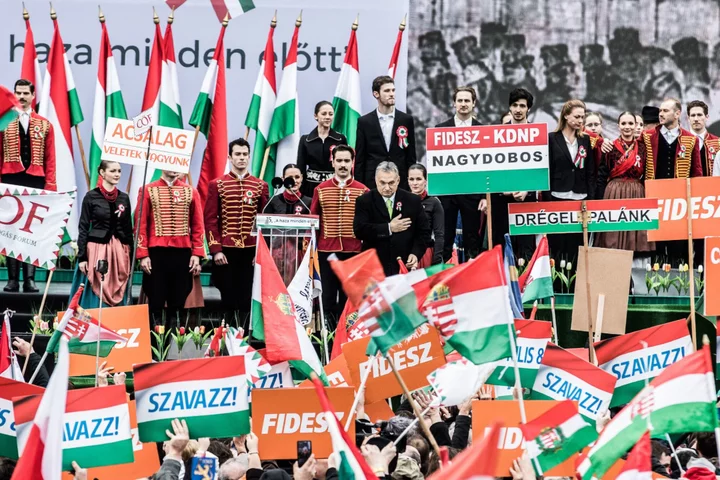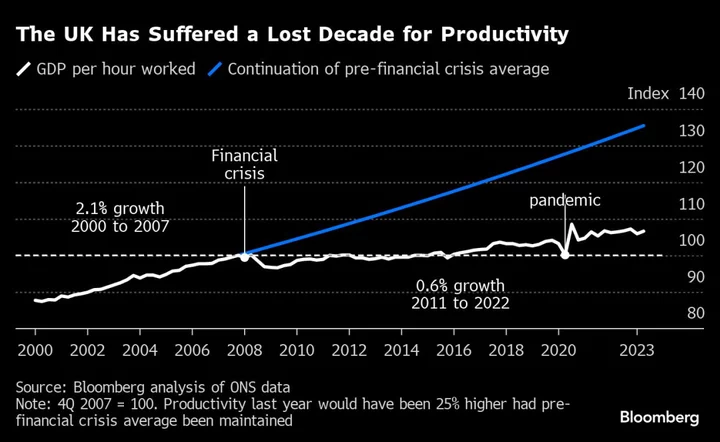Hungarian Prime Minister Viktor Orban, currently the longest-serving head of government in the European Union, plans to stay in power until 2034, Telex news website reported, citing people familiar with his plans.
Orban, 60, who is serving his fifth term and recently spoke publicly about staying in power until 2030, unveiled his new target at an annual, closed-door speech to his supporters over the weekend, Telex reported on Sunday, citing several people who attended the event.
Orban has clashed with the EU and the US over his unprecedented consolidation of power since he returned as premier in 2010. He’s extended his influence over all facets of life in Hungary from the courts, business, culture and education, and built a massive propaganda machine that has helped him hem in his political opposition.
The EU has suspended more than $30 billion in funds earmarked for Hungary over corruption and rule-of-law concerns. Relations with the US, a NATO ally, have also soured as Orban has rejected demands to loosen his control and to downgrade his government’s cozy relationship with China and Russia.
In his speech, Orban unveiled a 15-point plan to strengthen Hungary, which is enduring a yearlong recession, a severe labor shortage and is one of the EU members most reliant on Russian energy, Telex said.
The plan includes trying to engineer a boost in fertility rates, steps to modernize the military and an effort to substitute Russian nuclear fuel with French fuel at its sole nuclear plant, which is undergoing a Russia-led expansion.
Orban started his political career as an anti-communist student leader in the 1980s and made his name by audaciously calling on Soviet troops to leave Hungary even before the fall of the Iron Curtain.
He went on to shed his liberal roots and ruled as a center-right conservative in his first term as premier from 1998 to 2002. After eight years in opposition, Orban won a landslide election in 2010 and returned as a nationalist, pro-Russian leader who’s steered Hungary eastward over the past 13 years.









